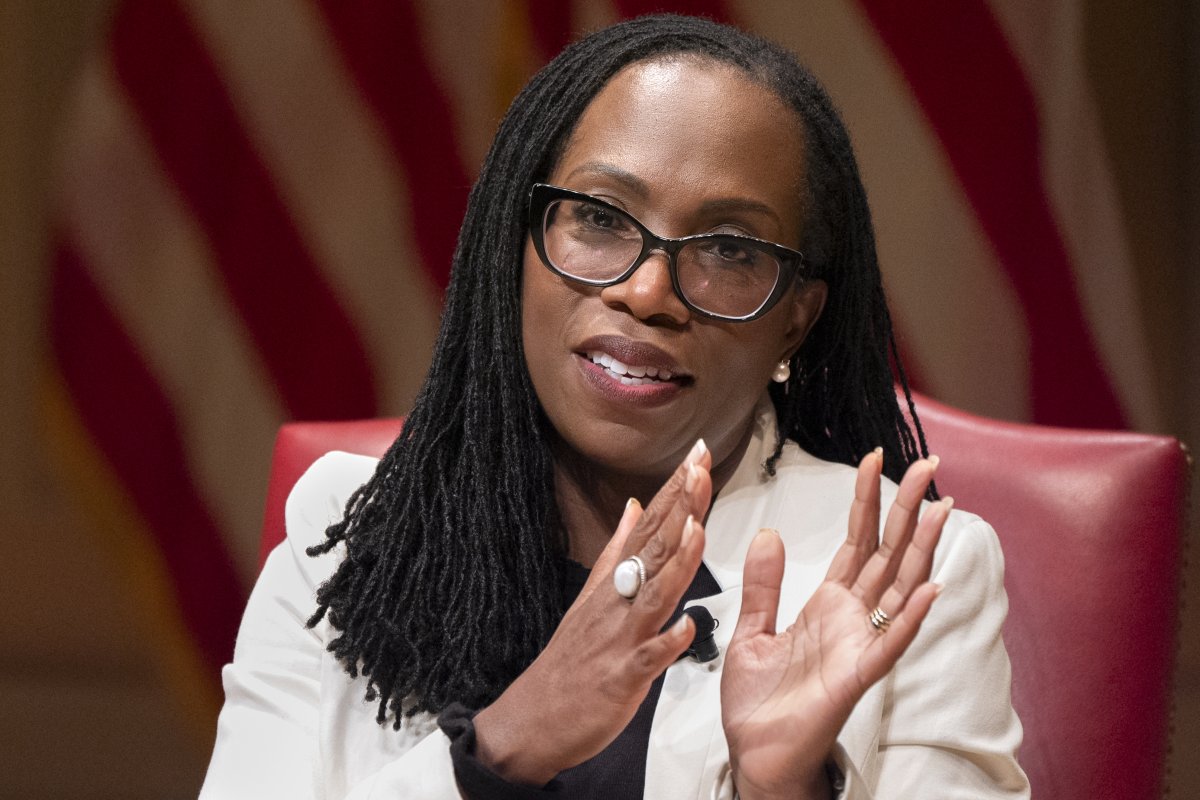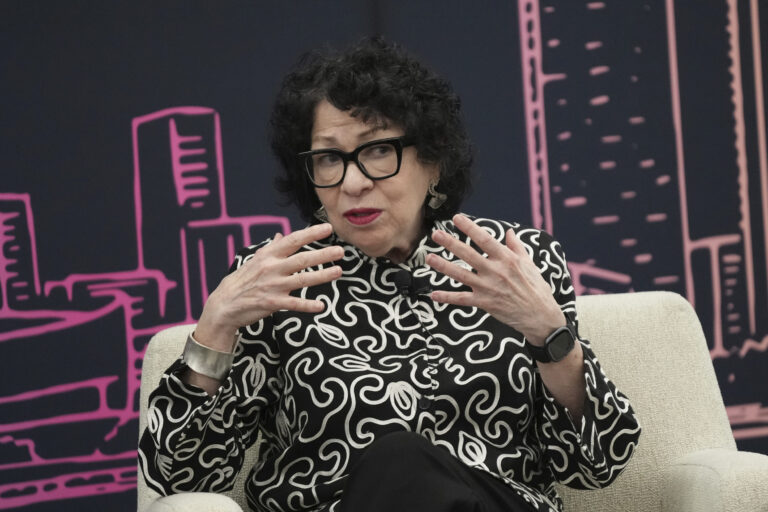In a dissent of a Supreme Court ruling, Supreme Court Justice Sonia Sotomayor said: “Today’s order clarifies only one thing: Other litigants must follow the rules, but the administration has the Supreme Court on speed dial.”
Justice Sotomayor made this statement in her dissent from the ruling allowing for migrants to be deported to countries they are not from.
In her dissent, which she wrote with Justice Ketanji Brown Jackson, she said that this would result in the government “deporting noncitizens to potentially dangerous countries without notice or the opportunity to assert a fear of torture.”
Sotomayor and Jackson levied other criticisms at the Trump administration and the conservative-leaning court in their dissent, saying, “Today’s order not only excuses (once again) the Government’s undisguised contempt for the Judiciary; it also leaves the District Court without any guidance about how this litigation should proceed.”Assistant
DHS Assistant Secretary for Public Affairs, Tricia McLaughlin, spoke to Newsweek about the deportation of eight men to South Sudan, saying: “These sickos will be in South Sudan by Independence Day.”

Lynne Sladky, File/AP Photo
Why It Matters
This Supreme Court contains three justices put on the bench by President Donald Trump. Although not all have always ruled in his favor, several major decisions over the past month have supported the Trump agenda, including allowing for transgender service members to be temporarily barred from the military and blocking judges from issuing nationwide injunctions on birthright citizenship.
In her dissent, Sotomayor accuses the justices of failing to serve in their roles as members of an independent branch of government.
What To Know
On July 3, the Supreme Court removed a district judge’s injunction blocking the government from deporting people to countries they are not from.
The case was brought regarding eight men who were removed from the U.S. and are currently being held at an American army base in Djibouti. The men are from Vietnam, South Korea, Mexico, Laos, Cuba, and Myanmar, and only one is from South Sudan.
In her dissent, Sotomayor pointed out that, “The United States may not deport noncitizens to a country where they are likely to be tortured or killed. International and domestic law guarantee that basic human right.”
This ruling could nullify that, as people are being sent to parts of the world where they may not know anyone or speak the language and where they may still face persecution.
“What the Government wants to do, concretely, is send the eight noncitizens it illegally removed from the United States from Djibouti to South Sudan, where they will be turned over to the local authorities without regard for the likelihood that they will face torture or death,” said Justice Sotomayor.
The Department of Homeland Security (DHS) argued to the court: “The district court’s extraordinary injunction prevents the Department of Homeland Security from exercising its undisputed statutory authority to remove the worst of the worst illegal aliens, those convicted of heinous crimes, to any third country not specified in their final removal orders, unless DHS complies with an onerous set of procedures invented by the court to assess any potential claim under the Convention Against Torture, no matter how implausible.”
In an amicus brief supporting DHS, lawyers for America’s Future and Conservative Legal Defense and Education Fund said: “At no time did the district court feel the need to give consideration to the importance of protecting the American People from those who had committed crimes in the United States, and were likely to commit further crimes, including sex offenses and murder.”
The men who were deported had been convicted of crimes and were serving prison sentences, but it is unclear whether they were likely to commit further crimes.
One of the men, Tuan Thanh Phan, had said he was planning to return to Vietnam once his sentence was served. Now, he is being sent to South Sudan.
South Sudan is a Level 4 “Do Not Travel” nation, according to the US State Department. People in the country face a high risk of crime, kidnapping, and armed conflict.
According to the State Department: “Violent crime, such as carjackings, shootings, ambushes, assaults, robberies, and kidnappings are common throughout South Sudan, including Juba. Foreign nationals have been the victims of rape, sexual assault, armed robberies, and other violent crimes.”

Jacquelyn Martin, Pool, File/AP Photo
What People Are Saying
DHS Assistant Secretary for Public Affairs, Tricia McLaughlin, told Newsweek: “A win for the rule of law, safety and security of the American people. We thank our brave ICE law enforcement for their sacrifice to defend our freedoms.”
Justice Sonia Sotomayor dissent: “The Court’s continued refusal to justify its extraordinary decisions in this case, even as it faults lower courts for failing properly to divine their import, is indefensible.”
The Department of Homeland Security argued to the Supreme Court: “Third-country removals are an essential tool for removing aliens who cannot be removed to the countries designated in their final removal order—especially criminal aliens whose home countries will not take them back. Yet the cumbersome process imposed by the order, and the court’s unpredictable enforcement of its new scheme, has brought such removals to a stand-still.”
What Happens Next
The men will likely be removed to South Sudan. It is not clear where in the war-torn country they will live or how their safety can be guaranteed. This sets a precedent for other undocumented people currently in prison to be deported to third-party nations.
Update 07/04/25 9:49 a.m. ET: This story was updated with comment from DHS Assistant Secretary for Public Affairs, Tricia McLaughlin.


